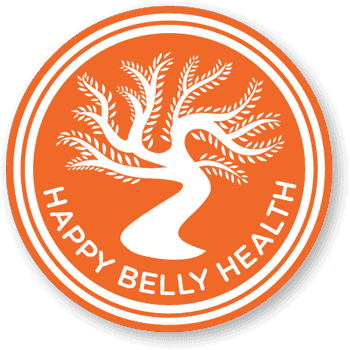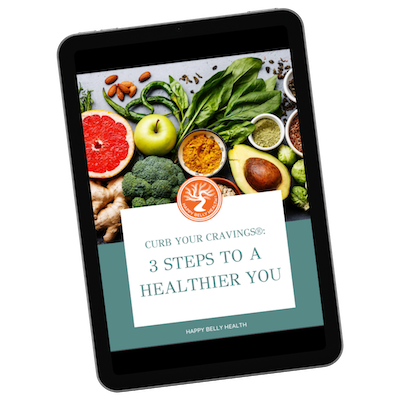Yes, it’s a dangerous world out there! In our modern world, we are unfortunately surrounded by hazardous substances. We should all be looking for ways of decreasing toxicity. Certain chemicals eaten in foods or drinks, applied to your skin or inhaled from the air can be absorbed by your body and may cause harm to your cells and organ systems.
They can cause inflammation and increase the body’s production of free radicals, thus increasing your likelihood of developing chronic health problems. They can also mimic the body’s hormones and cause major imbalances.
Food
- Shift your food purchases and consumption to organic when possible, and I highly recommend prioritizing animal products. It is most important to use organic dairy products (milk, cheese, yogurt, ice cream, etc.). Free-range meats and eggs are desirable to purchase as organic. Minimize the use of large fish (swordfish, tuna, etc.) as they are higher in mercury.
- Purchase organic strawberries and apples, and refer to the Environmental Working Group or Consumer Reports web sites to stay current about which fruits and veggies are most important to eat organic.
- Shift your food purchases and consumption to organic when possible, and I highly recommend prioritizing animal products. It is most important to use organic dairy products (milk, cheese, yogurt, ice cream, etc.). Free-range meats and eggs are desirable to purchase as organic. Minimize the use of large fish (swordfish, tuna, etc.) as they are higher in mercury.
- Try to avoid canned foods as much as possible due to possible leaching of BPA into the food from the can lining. BPA is a known endocrine disruptor that can mimic estrogen in the body. Where you do choose canned foods regularly, focus on foods that can be rinsed (e.g. beans). As of 2009, Eden Foods is the only organic canned food producer committed to being entirely BPA-free products.
Cleaning Products
Purchase the most natural cleaning and other household products you can find.
Avoid spraying pesticides or herbicides in your home or property.
Hair Products
- For hair and other personal hygiene products (including shampoo and colors) look for
products without alcohol, sodium lauryl sulfate, triclosan, paraben, phthalates, or other petrochemicals. Check to see if there is an environmentally-oriented hair or nail salon in your area.
- Avoid using hair sprays.
- For hair and other personal hygiene products (including shampoo and colors) look for
products without alcohol, sodium lauryl sulfate, triclosan, paraben, phthalates, or other petrochemicals. Check to see if there is an environmentally-oriented hair or nail salon in your area.
Perfumes
Avoid perfumes or other skin or hair care products that use synthetic fragrances (the word “fragrance” or “parfum” often indicates the presence of phthalates).
Skin Care and Makeup
- Use low-toxin make-up and skin creams (avoid products with: phthalates, parabens, propylene glycol, alcohols, artificial colors, and fragrances). In general, skin care products from health food stores without the above ingredients are a safer bet.
Consider using antioxidant creams on your skin: low solvent products with CoQ10, Vitamin C, and possibly DMAE and botanical squalene. - It’s hard to avoid polycarbonate plastic because it’s ubiquitous. Unfortunately it also
contains BPA. Examples are CDs, the faces of laptops, many toy parts, kitchen utensils, water cooler carboys, eyeglass lenses; it’s often identified as #7 in the recycling symbol on the product. Try to minimize exposure and in particular, using these against skin and especially against skin when warm and/or wet.
Navigating the Dangers of Modern Toxins
In today’s world, we are surrounded by hazardous substances. It’s crucial to find ways to decrease toxicity in our lives. Certain chemicals from foods, drinks, skin products, or even the air can be absorbed by your body, potentially harming your cells and organ systems. These toxins can cause inflammation, increase the production of free radicals, and heighten the risk of chronic health problems. They can also mimic hormones, leading to significant imbalances.Food
- Organic Purchases: Shift your food purchases to organic when possible, especially animal products.
- Priority Items: Organic dairy products (milk, cheese, yogurt, ice cream) and free-range meats and eggs are particularly important.
- Fish Consideration: Minimize consumption of large fish like swordfish and tuna due to higher mercury content.
- Priority Items: Organic dairy products (milk, cheese, yogurt, ice cream) and free-range meats and eggs are particularly important.
- Fruits and Vegetables: Purchase organic strawberries and apples. Check resources like the Environmental Working Group or Consumer Reports for updates on which fruits and veggies should be organic.
- Canned Foods: Avoid canned foods due to potential BPA leaching from can linings, which can disrupt hormones. If you do consume canned foods, opt for those that can be rinsed, like beans. Note that Eden Foods is committed to being entirely BPA-free since 2009.
Products
Cleaning Products: Choose the most natural cleaning and household products available. Avoid spraying pesticides or herbicides in your home or on your property.
Hair Products:
- Look for hair and personal hygiene products (including shampoos and colors) without harmful ingredients like alcohol, sodium lauryl sulfate, triclosan, parabens, phthalates, or petrochemicals.
- Check for environmentally-friendly hair or nail salons in your area.
- Avoid using hair sprays.
- Look for hair and personal hygiene products (including shampoos and colors) without harmful ingredients like alcohol, sodium lauryl sulfate, triclosan, parabens, phthalates, or petrochemicals.
Perfumes:
- Avoid perfumes or other skin and hair care products with synthetic fragrances. The term “fragrance” or “parfum” often indicates the presence of phthalates.
- Avoid perfumes or other skin and hair care products with synthetic fragrances. The term “fragrance” or “parfum” often indicates the presence of phthalates.
Skin Care and Makeup:
- Use low-toxin makeup and skin creams. Avoid products containing phthalates, parabens, propylene glycol, alcohols, artificial colors, and fragrances.
- Products from health food stores that omit these ingredients are generally safer.
- Consider using antioxidant creams on your skin, such as low-solvent products with CoQ10, Vitamin C, and possibly DMAE and botanical squalene.
- Use low-toxin makeup and skin creams. Avoid products containing phthalates, parabens, propylene glycol, alcohols, artificial colors, and fragrances.
Minimizing Exposure to Polycarbonate Plastics
Polycarbonate plastics, which contain BPA, are widespread and found in items like CDs, laptop faces, toy parts, kitchen utensils, water cooler carboys, and eyeglass lenses. These are often marked with the #7 recycling symbol. Try to minimize exposure to these plastics, especially against the skin when warm and/or wet.
- Organic Purchases: Shift your food purchases to organic when possible, especially animal products.
Antiperspirants and Deodorant
Avoid aluminum-containing antiperspirants and antacids. Since virtually all antiperspirants contain aluminum, it may be advisable to minimize or discontinue use. Choose a natural deodorant instead.
Water
- Water can have many toxins and thus regular consumption of unfiltered water can significantly contribute to the toxic load of your body.
- Water quality will vary from city to city, but in general it is better to filter tap water with a multi-stage carbon filter or reverse osmosis filter. You can do this at an individual source (e.g. sink) or whole house.
- Try to avoid bottled water in soft plastic containers as the plastics often leach into the water. Don’t drink water from plastic water bottles that have been in a hot car or stored in a hot warehouse.
- Minimize the use of camel-back type plastic water containers.
- Mineral waters in glass bottles are generally safe unless there is a question of the quality of
the source.
- Have approximately 6-8 glasses of pure, clean water or healthy liquids each day. Use glass
or ceramic or stainless steel when possible.
- Filter shower water in order to limit your exposure to chlorinated hydrocarbons.
Plastics
-
Plastics can disrupt hormones in your body.
- In particular, avoid plastic bottles and containers with the numbers 3, 6 and 7 on the
bottom. These are most likely to leach plastics into the food, juice or water that they
contain.
- Buy juices and water in glass containers when possible.
- Avoid all PVCs.
- Do not microwave in plastic containers. Use glass instead and cover with a ceramic plate or
paper towel.
- Minimize washing plastic containers in the dishwasher under high heat.
- Minimize the use of cling wraps; use paper wraps instead.
Dental Care
- Do not get mercury amalgam fillings.
- Get second opinions on root canals.
- Avoid if possible having 2 different metals in your mouth – but in particular in adjacent
teeth.
- Pick a dentist who is aware of healthy choices for the mouth—perhaps a more holistic or
biologically oriented dentist who does not place new silver amalgam (i.e. mercury-loaded)
fillings.
- Avoid all toothpastes and dental treatments involving fluoride.
Home
-
Air out your home fully at least a couple times a week, especially in the winter when toxins build up in stagnant air.
- Use only green and low VOC products in a remodel or a new home.
-
Air out your home fully at least a couple times a week, especially in the winter when toxins build up in stagnant air.
- Don’t use pots and pans with Teflon or related non-stick surfaces. Also avoid all aluminum
cookware.
- Avoid furniture with particle board or buy used furniture that has had a chance to “off gas.”
- Let a new car off-gas by keeping the windows open as much as possible for the first 6-9
months.
- Use an air filter such as a Hepa filter with a charcoal filter to clean the debris in the air.
- Minimize the amount of regular carpet in your home, or use natural carpets (e.g. wood
without coatings).
- Avoid using pesticides in your house and garden, especially if you have children and/or
pets.
- Always wash new linens and clothing thoroughly, preferably in hot water, before wearing.
- Avoid flame-retardant, anti-stain, and other chemical coatings on textiles (e.g. furniture,
textiles, bedding, clothing, carpet that is treated with flame retardants (PBDEs or polybrominated diphenyl ethers) or a stain-proof chemical such as StainMaster (perfluorinated chemicals).
Home or Office Remodel
- Use a low or no VOC paint and carpet or rug.
- Minimize carpet and choose hardwoods but not laminates (avoid Pergo, for example).
- Take off shoes at the door to decrease likelihood of transmitting chemicals and pesticides
indoors.
- Avoid urea formaldehyde in building products.
- Change the filter on your furnace every 3 months, using the best allergy furnace filter you
can find.
Electromagnetic Fields
For clients with headaches or regional pain, decrease exposure to low-level electromagnetic fields:
Minimize cell phone use and hold away from head while talking (i.e. use speaker phone mode or a headset as much as possible).
- Minimize your use of portable phones at home and shift to corded phones.
- Take the clock radio away from your head and bed.
- Get the fields measured in a potential new car before you buy it.





